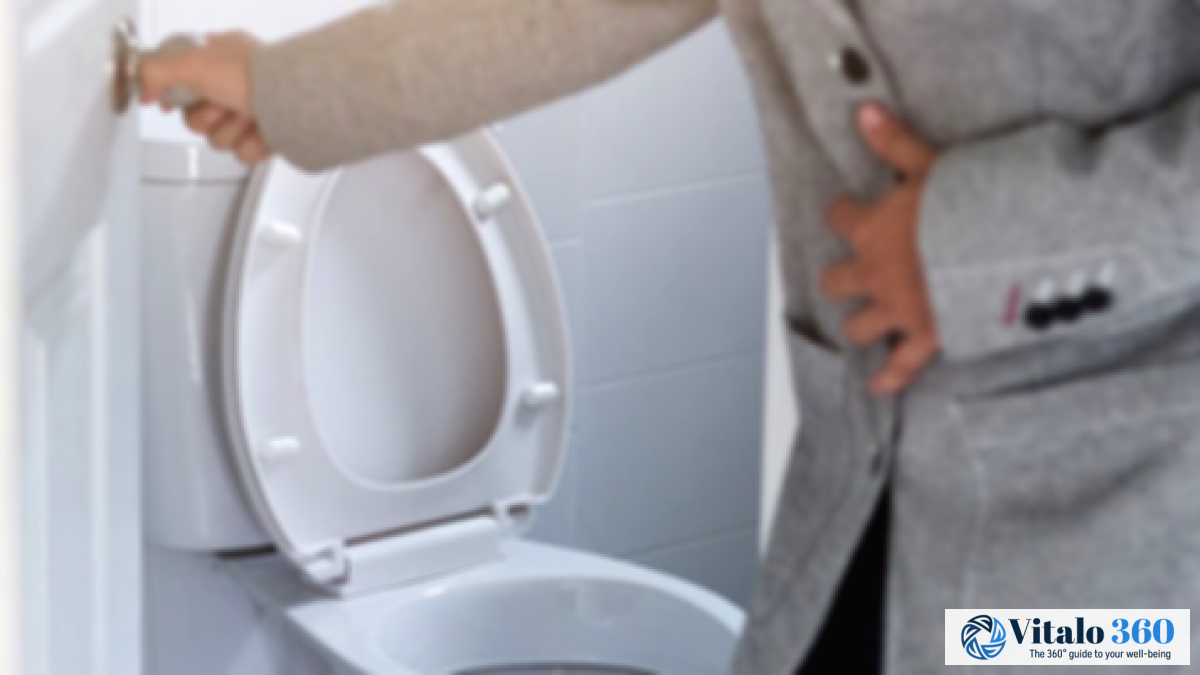Experiencing oily or floating stool? It could be steatorrhea, indicating issues with fat absorption due to diet, medications, or conditions like celiac disease. Learn about the symptoms and potential treatments.
Have you noticed anything… different about your stool lately? Maybe it’s floating, or looks a bit oily? If you’re seeing excess fat in your stool, it could be steatorrhea. It sounds scary, but don’t worry, we’ll explore it further, um, breaking down what it means and what might be causing it. That said, remember this isn’t medical advice, just a friendly chat, alright?
- Causes of Fatty Stool
- Diseases Associated with Fatty Stool
- Medications That May Cause Fatty Stool
- Symptoms of Fatty Stool
- Treating Fatty Stool
So, fatty stool (steatorrhea) is when your poop contains a higher-than-normal amount of fat. Think of it like this: your body isn’t absorbing fats and nutrients properly, which can include proteins, vitamins, and minerals. This can happen for various reasons, which we’ll get into.
Let’s jump right in and look at the most important causes, symptoms and ways to treat fatty stool:
Causes of Fatty Stool
Fatty stool can result from issues with how your body digests fats. Like, certain dietary habits can trigger it. Steatorrhea, that’s what we call fatty stool, is basically a situation where your gut isn’t quite doing its job right. And, here are some potential reasons why:
1. Dietary Causes High in Fats
One of the most frequent triggers for fatty stool is a diet rich in fats, potassium supplements, or fiber. This can affect how your digestive system normally functions. Speaking of diet, we’ve noticed many folks are confused about the role of probiotics and prebiotics in gut health; they’re not just for after you’ve taken antibiotics. These supplements may actually assist with a more normal digestion, and could potentially decrease the occurrences of fatty stools.
- Supplements, especially the non-concentrated ones.
- Fish that are high in fats and oils, such as fatty tuna and mackerel.
- Large amounts of alcohol.
- Processed fats.
- Artificial oils.
- Coconut or palm oils.
- Processed foods from whole grains.
2. Diseases Associated with Fatty Stool
Sometimes, having fatty stool for a long time can indicate an underlying health issue. It might be a symptom of a disease or condition, like:
- Enzyme deficiencies.
- Celiac disease or inflammatory bowel disease.
- Malabsorption.
- Some pancreatic diseases.
- Cystic fibrosis.
- Damage or issues in the intestines.
- Damage or issues in the gallbladder.
- Short bowel syndrome.
- Gallbladder removal or gallbladder surgery or gallbladder cancer.
- Tumors or issues in the stomach.
- Scleroderma.
- Lymphatic gland damage.
- Acquired immune deficiency syndrome (AIDS).
- Some pancreatic diseases.
- Crohn’s disease.
- Bacterial overgrowth in the digestive system, particularly E. coli and Whipple’s disease.
3. Medications That May Cause Fatty Stool
It’s worth noting that fatty stool can sometimes be a side effect of certain medications used to treat medical conditions, such as:
- Weight loss medications, such as fat and carbohydrate blockers.
- Cholesterol medications.
- Certain medications for diabetes.
- Medications for treating intestinal, gallbladder, or pancreatic infections.
Symptoms of Fatty Stool
Common symptoms of fatty stool include:
- Stool that floats on the water’s surface.
- Stool that is light in color because of the high-fat content, often resembling clay.
- Stool that is sticky or greasy.
- Foul-smelling stool.
- Easy to see an unusually large amount of fat in the stool.
- Stool that’s pale in color, possibly green, gray, or yellow.
- Severe abdominal pain, along with bloating, gas, and flatulence.
- Diarrhea.
- General discomfort.
- Mild pain in the muscles, bones, and joints.
Fatty stool can also have other symptoms that indicate an underlying health problem. These symptoms require prompt medical attention. Some of these symptoms include:
- Frequent, persistent, and foul-smelling greasy stool, lasting for several days.
- Anemia or iron deficiency.
- Aches and pains in the joints.
- Irritability and mood swings.
- Weakness in weight.
- Fever.
- A decrease in the normal growth rates for children.
- Vision problems.
- Skin problems.
- Neurological issues.
- Bone loss.
Treating Fatty Stool
The treatment approach depends on the underlying cause. If you’re only experiencing mild or occasional steatorrhea, you can start by making simple adjustments such as:
- Maintaining healthy fat levels in the body.
- Reducing your fiber intake.
- Reducing your fat intake.
- Avoiding smoking.
- Avoiding alcohol.
- Increasing your intake of fat-soluble vitamins like A, D, E, and K.
- Increasing your intake of vitamin B12, folic acid, iron, magnesium, and calcium.
For severe or persistent cases, it’s vital to see a doctor to get the correct diagnosis and treatment plan. Underlying medical conditions causing steatorrhea will need targeted therapies.
Key takeaways
- Fatty stool (Steatorrhea) is characterized by high fat content in stool, indicating malabsorption.
- Causes include dietary factors, diseases like celiac or cystic fibrosis, and certain medications.
- Treatment varies depending on the cause, ranging from dietary adjustments to medical interventions.
FAQ, Myth & Facts
What does fatty stool look like?
Typically, it appears pale, bulky, greasy, and floats on the surface of the toilet water. It can also be foul-smelling and difficult to flush.
Is fatty stool always a sign of a serious medical problem?
Not necessarily. While it can indicate underlying health conditions, it can also result from temporary dietary changes or medication side effects. Persistent or severe cases should be evaluated by a healthcare provider.
Can stress cause fatty stool?
While stress itself doesn’t directly cause steatorrhea, it can disrupt digestive function and worsen symptoms of conditions that lead to fatty stool, such as irritable bowel syndrome (IBS).
Myth: If I have fatty stool, I should cut out all fats from my diet.
Fact: While reducing fat intake can help manage symptoms, completely eliminating fats is not recommended. Fats are essential for nutrient absorption and overall health. A balanced diet with healthy fats is important.
“I was so worried when I started noticing changes in my stool. It was floating, and honestly, it looked kind of scary. After talking to my doctor, it turned out to be a simple dietary issue. Adjusting my diet made a huge difference!”
“Dealing with fatty stool was frustrating. I couldn’t figure out what was going on until I was diagnosed with a digestive condition. Once I got on the right medication, things started to improve. It’s so important to get a proper diagnosis.”
“The constant discomfort and changes in my bowel movements really affected my daily life. I was always worried about being far from a bathroom. Learning about the possible causes and treatments helped me take control of my health and find relief.”
So, there you have it. Fatty stool might seem alarming, but understanding the potential causes can empower you to take the right steps. It’s a good reminder to pay attention to our bodies and listen to what they’re telling us, right?









